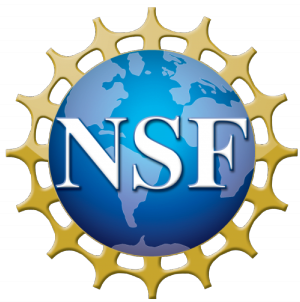July 1st, 2018 - November 30th, 2020 | PROJECT
One way to motivate young people from diverse backgrounds to pursue engineering careers is to enlist them as educators who can help the general public understand how engineers help respond to the challenges of everyday life. The New York Hall of Science, which serves a large and diverse audience, is an ideal setting for testing the promise of this strategy. Youth educators and curators of public programs at the Hall of Science will mentor two groups of high school- and early college-aged youth, who will contribute to the design and facilitation of engineering-focused events and activities for museum visitors. They will work together to develop engineering programming for the public that emphasizes the cultural and interpersonal dimensions of engineering practices. This group of young people will be recruited from the Hall of Science's more than 100 Explainers, a very diverse group of young people who work part-time at the Hall of Science and engage with visitors as they explore the museum. Researchers will track participants' experiences and document their impact on museum visitors' perceptions of engineering. The expectation is that creating and delivering these experiences for visitors will have a positive impact on the youth participants' understanding of the engineering disciplines, and on visitors' perceptions of engineering and its relationship to everyday life.
The project will use observations, interviews, journaling, and the Engineering Professional Skills Assessment to explore youth experience, and visitor exit surveys and interviews to probe visitor perceptions. Both the skills assessment and visitor surveys are NSF-funded instruments. Data coding will be grounded in the engineering habits of mind defined by the National Research Council's Committee on Understanding and Improving K-12 Engineering Education in the United States (2009). The project will capture evidence regarding which habits of mind the Fellows are most frequently engaged with. The effort will also explore how interactions with peers (as colleagues), with experts (as learners, such as with Designers in Residence) and with visitors (as teachers and leaders) may be associated with different combinations of the habits of mind over the course of the project. Visitor data and assessment data will allow the project to begin to make analytic connections between participating young people's increased understanding of culturally-situated engineering challenges, and their impact on the experiences of museum visitors who engage with engineering programming at the Hall of Science.
Project Website(s)
(no project website provided)
Team Members
Katherine McMillan, Principal Investigator, New York Hall of SciencePriya Mohabir, Co-Principal Investigator
ChangChia James Liu, Project Staff, New York Hall of Science
Funders
Funding Source: NSF
Funding Program: Engineering Education
Award Number: 1763917
Funding Amount: $396,008
Tags
Audience: Educators | Teachers | Museum | ISE Professionals | Undergraduate | Graduate Students | Youth | Teen (up to 17)
Discipline: Engineering
Resource Type: Project Descriptions
Environment Type: Museum and Science Center Programs | Public Programs

